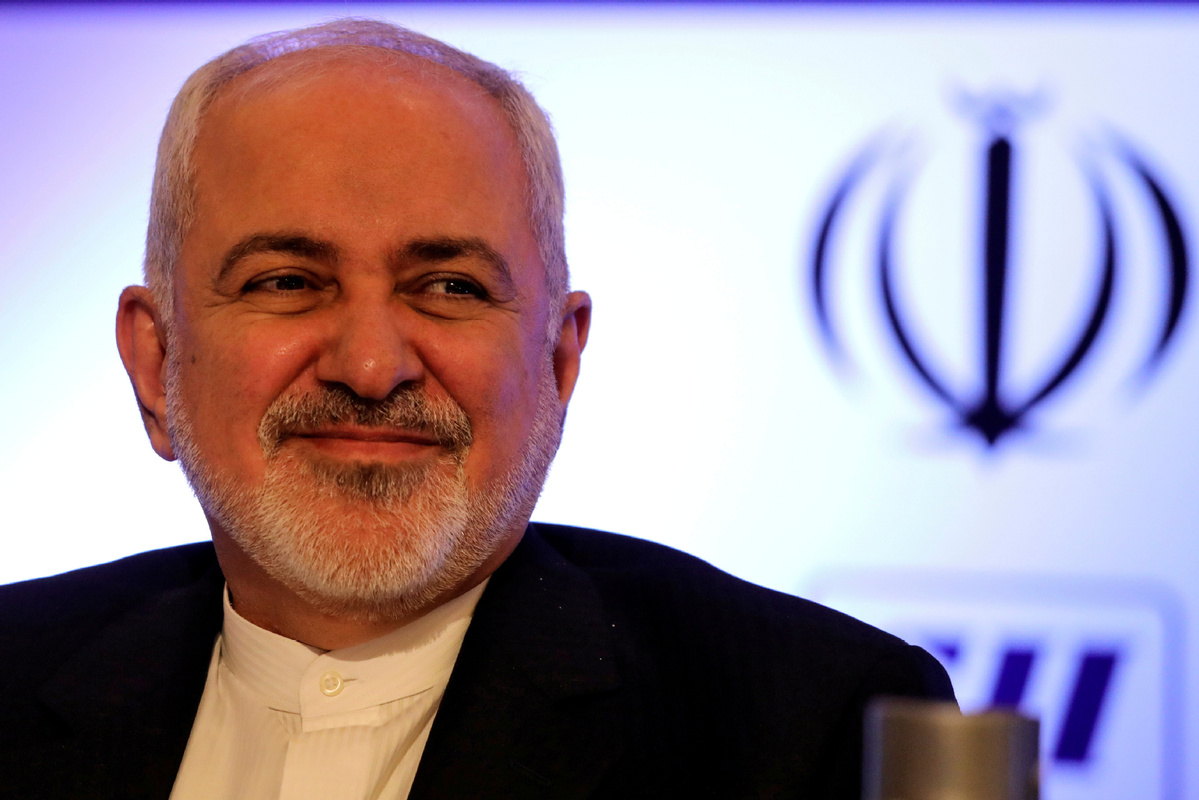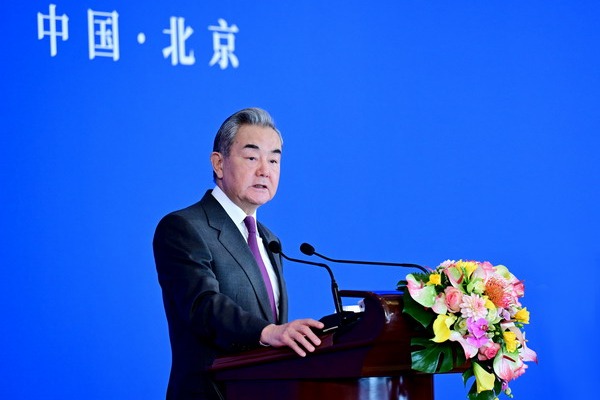Iran says US sanctions 'unacceptable' amid Persian Gulf tensions


Iran's foreign minister on Thursday slammed mounting US sanctions imposed on Teheran as "unacceptable", even as he insisted that his country is committed to an international nuclear deal that has steadily unraveled amid rising tensions in the Middle East, The Associated Press reported.
Recent days have seen allegations of sabotage attacks targeting Saudi oil tankers off the coast of the United Arab Emirates, a drone attack on a Saudi oil pipeline claimed by Yemen's Iranian-backed rebels, and the dispatch of US warships and bombers to the region.
Late on Wednesday, Anwar Gargash, the UAE minister of foreign affairs, said the Saudi-led coalition would "retaliate hard" for attacks on civilian targets, without elaborating.
However, he also said the UAE is "very committed to de-escalation" after the alleged sabotage of oil tankers off the country's coast on Sunday. Gargash declined to directly blame Iran for the attack, though he repeatedly criticized Teheran.
At the root of the recent spike in Persian Gulf tensions appears to be US President Donald Trump's decision a year ago to pull Washington from Iran's nuclear deal with world powers, embarking on a maximalist sanctions campaign against Teheran to cripple the Iranian economy.
In response, Iran's Supreme Leader Ayatollah Ali Khamenei issued a veiled threat on Tuesday, saying it wouldn't be difficult for the Islamic Republic to enrich uranium to weapons-grade levels. He also said that while his country would not negotiate with the US, Iran is not seeking war.
On Wednesday, the US State Department ordered all nonessential government staff to leave Iraq, and Germany and the Netherlands both suspended their military assistance programs in the country in the latest sign of tensions.
The movement of diplomatic personnel is often done in times of conflict, but what is driving the decisions from the White House remains unclear. Iraq is home to some pro-Iranian militias, while also hosting more than 5,000 US troops. The US military's Central Command said its troops were on high alert, without elaborating.
German Chancellor Angela Merkel's spokeswoman Ulrike Demmer expressed concern over the tensions and said Germany welcomes "any measure that is aimed at a peaceful solution". Foreign Ministry spokeswoman Maria Adebahr said the German government has not reduced its embassy staff in Iraq or Iran.
Last week, US officials said they had detected signs of "Iranian preparations for potential attacks" on US forces and interests in the Middle East, but Washington has not publicly provided any evidence to back up claims of an increased Iranian threat.
But a senior British officer in the US-backed coalition fighting the Islamic State group appeared to push back against the US claims, telling reporters earlier in the week that there'd been no increased threat from Iranian-backed forces in Iraq and Syria. Major General Chris Ghika's comments exposed international skepticism over the US military buildup, AP said.
Zarif visits Japan
On a visit to Tokyo on Thursday, Iranian Foreign Minister Mohammad Zarif told his Japanese counterpart Taro Kono that his country's response to the US actions - Washington's pullout from the nuclear deal last year and the imposition of US sanctions - is within Iran's rights.
Iran recently threatened it might resume higher enrichment by July 7, beyond the level permitted by the current deal between Teheran and world powers. When the US pulled out of the deal last year, it reimposed sanctions that would penalize countries and global companies that do business with Iran.
Kono expressed concern over the rising tension in the Middle East, and urged Zarif to use restraint and keep implementing the nuclear deal.
Japanese Prime Minister Shinzo Abe told Zarif that Japan would like to maintain, and develop, its traditionally friendly ties with Iran, Reuters reported.
Agencies and Xinhua

































